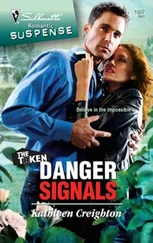‘What should I say, except what I have said three times, and that is that there is no choice?’
‘Say it three hundred times and still you fail to reassure me. What phrase is there to best describe your inn?’
‘The only inn in town.’
‘Ah, yes. You are right to stand firm against my questioning. Refuse to yield to me!’
‘I don’t know enough to yield or not — but I’m the only one in Wherrytown’ll lead you to an empty bed. Except there’s plenty barnyards in the neighbourhood, so long as you like rats.’
‘The rat is much maligned …’ But Aymer Smith’s discourse on rats would have to wait another opportunity. The two men reached the lower entrance to the inn.
The inn was ideal for hide-and-seek. It was a warren, untouched by architects. The town rose steeply from the harbour front and the building had perplexing levels that placed the stable lofts scarcely higher than the scullery basement and meant that the attic box room looking south and the ground-floor parlour facing north were connected by a level corridor. An outside wooden staircase led from the seafront courtyard to a balcony and bedrooms, but there was no direct seafront entrance to the public rooms. There wasn’t any logic to the place nor, even, any regimental regularity to the shapes and sizes of the building’s bricks and stones.
‘Accommodation for man and beast. Victuals, Viands and Potations,’ said George. ‘It’s hay or cheese for supper.’
Aymer followed him up a narrow passageway of steep, pebbled steps that climbed through the heart of the inn. He didn’t like the smell of fish and urine, nor the meanness of the alley, nor the pinched and sea-damp wind which rifted at his back. They came out in a lane, and for a moment Aymer was relieved to think their destination was some other, better place. But George directed him towards a raised front door with a flat granite lintel, just to the right of the alleyway. It opened directly into a low-ceilinged parlour, empty except for a solid, black-haired woman on her knees, removing ashes from the grate. She was, she said, Mrs Yapp, the landlady, the innkeeper. She didn’t rise to greet her guest.
‘Give the gentleman a bed,’ she instructed George.
‘Assure me that you have sheets,’ demanded Aymer, gripping his carriage bag and coat.
‘There’s sheets for those that ask,’ said Mrs Yapp.
‘And good, hot food that’s fit for eating?’
‘There’s nowhere else,’ she said. ‘Unless you want to stop with Mr Phipps, the preacher, who has a room for Christian travellers. Sinners and repentants catered for. The bill will be repented, that’s for sure. It’s good, hot food he dishes up, and fit for eating, except it’s Buttered Tracts and Bible Soup and Psalm Tea.’
‘… and Hebrewed Ale,’ said George. He’d said the same a hundred times before.
‘… and the Word Made Flesh,’ added Aymer, after a short moment’s silence.
Aymer had meant to make a good impression in Wherrytown. He knew that he would never have a reputation for vivacity, and that he was more comfortable with documents than company, but still he’d meant to be amusing and relaxed, putting George at ease, demonstrating to Mrs Yapp that he, though firm and businesslike, was happy to be informal. But once he had been taken down two short flights of steps and left alone inside one of the balconied rooms above the courtyard he almost wept. He had, he felt, been treated with hostility. The woman hadn’t even stood to greet him. That was not behaviour to admire. And George the parlourman had seemed to find his conversation comic, except when he attempted jokes. He hadn’t even shown gratitude when Aymer had presented him with a bar of white soap by way of thanks.
His room was on two levels and had four curtained beds, none of which was welcoming, and none of which had sheets. There was no other furniture nor any draping on the windows. There was a chamber pot, a water jug and two small tin basins. The walls and floorboards smelled of fresh lime wash. At least the bedbugs had been treated. Aymer couldn’t imagine spending a single night in any comfort there. Perhaps he could conclude his business in one day and take the Sunday return passage on the Tar , home again. He went out on to the balcony and looked across the courtyard and the harbourfront to where the Tar was docked amongst some smaller fishing boats that had been damaged by the gale. The cold, the breeze, the brightness of the sky, his shoulder pain, the dislocation that he felt from being far from home, brought water to his eyes. It didn’t help that he had travelled all this way with nothing but bad news.
He chose a bed close to the windows, where there was light enough to read and write. He took a quill, some paper and a pinch of ink from his bag. He mixed sufficient ink with spittle and began to write, unsteadily, using his knees as a desk. He put the title of the family firm in capitals at the top of the page:
HECTOR SMITH & SONS
Manufacturers of Fine Soap
And then he added his address:
The Only Inn
Wherrytown
Saturday, 19th November
Sir, he wrote , I am this morning arrived on the coastal packet in Wherrytown and lodged at the inn. I would be obliged if we could meet at your soonest convenience. I have disclosures that concern our business interests and that I wish to communicate with some urgency.
He added his own signature and then, on the reverse of the folded sheet, the name of the agent who at that very moment was riding in the shallows to haul a Yankee from the sea where the Belle of Wilmington had beached: Walter Howells, Esq.
Now he wrote a second letter, to his younger brother:
My dear Matthias, I am safely come to Wherrytown and have survived the worst of storms at sea. Already I have summoned Mr Howells and am awaiting his reply. I write this letter for the return of the coastal packet which will depart tomorrow, Sunday, in case my business does not allow a swift departure from this place. Despite my deprivations I am convinced of the propriety of my coming here, and hope that in my brief absence you will come to recognize that our responsibilities to these people could not be satisfied by pen and ink and paper but only by the presence of at least one son from Smith & Sons.
He read the last line several times aloud. He hoped his brother would detect reproof but not the coldness that he felt. Matthias was a businessman who had no moral code. But Aymer? He was moral code and little else.
Aymer, at forty-two, was senior to Matthias by nineteen months — yet he was the younger, lesser man in everything but age. Matthias had a city and a country house, a wife, two daughters and a son, a carriage and six servants. Matthias was a Justice of the Peace. He was obese. He sang, a decent baritone. And since his father died he’d been the acknowledged master of Hector Smith & Sons. He had transformed the business. The city works employed ninety adult hands, as well as twenty children, and produced forty thousand bars of soap a week. Smith’s Finest Soaps were used by royalty, but there were cheap, good-looking soaps for working people too. Soon the company would be renamed: MATTHIAS SMITH & SON.
Aymer had little interest in soap. He was a Sceptic, a Radical and an active Amender. But, still, he was the junior partner in Hector Smith & Sons. It provided him with income, and notionally it was his task to help his brother at the works. Matthias, though, had no faith in Aymer. He thought he was a waster and a fool, best left alone to read his riotous pamphlets and his volumes of verse than let loose amongst the company’s order books and ledgers. Yet Aymer went to work each day. He had a sense of duty. There was dignity in labour. The task he took upon himself was not to help his brother but to check him. If Aymer could rename the company it would not be MATTHIAS SMITH & SON or SMITH BROTHERS, but SMITH BROTHERHOOD or EMANCIPATION SOAPS. He didn’t have an easy manner with the factory hands. He wasn’t even liked. But he could fight on their behalf. To no avail he pressed his brother to provide gloves and leather aprons to protect the soapmakers from the boiling fat. He bullied for a shorter working day. He argued that the works should not employ children under twelve. He recommended profit-sharing schemes, and factory schools, and rights of Combination. He was, as Matthias said to Fidia, his wife, ‘half-boiled, half-baked and half a man’.
Читать дальше












